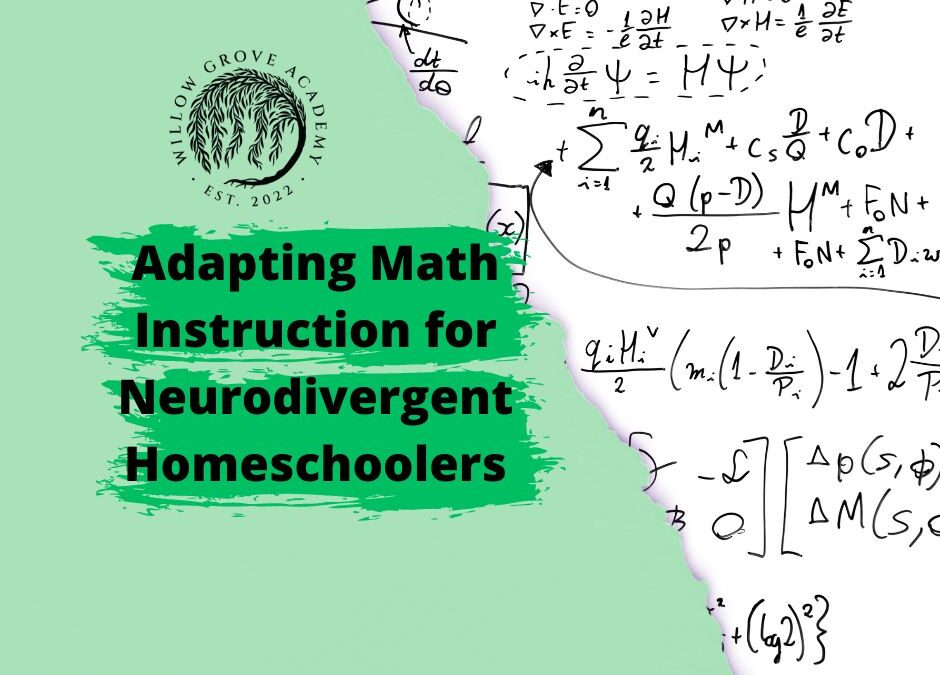If you have a child who struggles in math, chances are your child has shed a tear or two over his math work. Maybe you have shed a tear too!
Take heart, there are some accommodations you can provide to your student to make math more manageable and less stressful.
Start with manipulatives.
Math manipulatives are readily available and can help take concepts from abstract to concrete. Kinetic learning helps reinforce the concepts.
It is always good to vary the learning modalities (visual, auditory, and tactile) to be sure that concepts are really sticking.
Pay attention to how long it takes when doing math lessons for your child’s learning battery to wear out. Once you have determined how long he is able to focus, use that as a gauge for how long you should work on math each day.
It’s ok to cut a lesson short if you see a meltdown on the horizon or just see him losing focus. It is important to quit before the frustration level is overwhelming in order to keep his math stress level in check.
Choose a curriculum that isn’t based on the “drill and kill” philosophy. If he can do 5 problems perfectly, he doesn’t need to prove his mastery with 40. That is a sure way to up his stress level and cause him to dread math each day.
Try to choose a curriculum that isn’t visually overwhelming. Avoid lots of color and too many problems on a page. If there are too many problems on the page, re-write them on a separate sheet of paper. 4-6 problems on a page is enough.
If you have multiple children being homeschooled, try to use a different curriculum with your struggling math student. There are good programs out there that don’t use grade levels which would be ideal.
Work at your student’s own pace and don’t stress about what level of math he is in. In many cases, math clicks eventually. Build up his confidence by taking math slow and allowing him to master concepts on his own timetable.
Avoid comparing your child to other children! This isn’t fair to either of you. If you can focus on his accomplishments without worrying about what other children (including your own) are doing, everyone will be happier.

